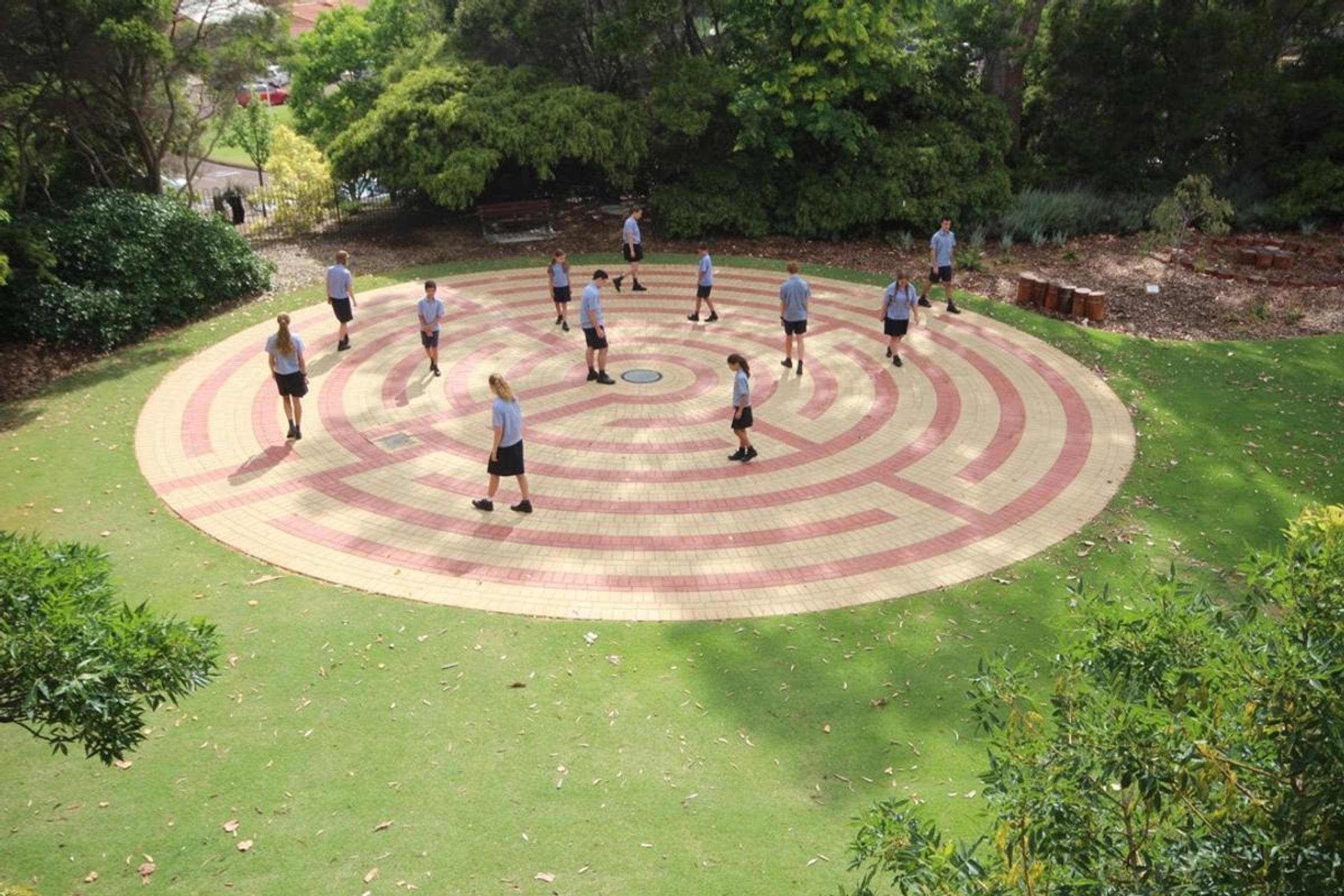Liturgy

Community Liturgy
Thank you to Ward House and Mr Deurloo for preparation of this week’s Community Liturgy.
Our Liturgy next Friday will be prepared, for the last time, by the Year 12 students. Friends and families are very welcome.
Friday 30 August there are three changes:
- Mass commences at 7:30am
- Mass will be in the St Louis Sports Centre
- Our community will be augmented by dads, grandads and other father figures – as well as students from Primary and Secondary.
Community Liturgy summary
- Where: College Chapel
- Time: 8:00am – 8:30 am
- When: every Friday in term time
EXCEPTION
- Week 6 – Mass dedicated to Fathers – 7:30am in the St Louis Sports Centre
GOOD NEWS for: 20th Sunday in Ordinary Time
Luke 12: 49-53
The reflection for this Sunday’s Gospel is a homily by Jesuit priest, Fr Richard Leonard. Fr Richard Leonard SJ is the Director of the Australian Catholic Office for Film and Broadcasting, is a member of the Australian Catholic Media Council and is author of Preaching to the Converted, Paulist Press, New York, 2006.
In our desire to affirm that the scriptures are inspired, it can be easy to forget that they come out of the lived experience of a community of faith. Indeed, one of the things that is wonderful about our belief in God's revelation is that it occurs within human experience. Today's Gospel is an excellent example. Jesus predicts that one of the consequences of believing in him is that divisions will follow.
We can tell from the whole text of Luke's Gospel that these divisions were certainly a part of the earliest Christian community which wrote this book and that their faith in Christ led them to confront some very tough issues: how could Gentiles inherit the promises made to the Jews; why the rich members of the community had special responsibility to the poor; the centrality of forgiveness in the Christian life; and what leadership role women should have in the earliest Church. We know that fights over these issues and faith in Jesus as the Christ or the Messiah, divided families and villages, cities, nations and a religious tradition.
This gospel is both a stark reminder of the costs involved in following Jesus and a comfort to us in the church today. Sometimes we can domesticate the Christian community into a ‘feel-good’ society. Our religious words and actions, however, are always meant to have an edge; our faith should ‘afflict the comfortable and comfort the afflicted’. If Christians at home, at work, in society and on the international stage just go along with what is trendy or current because we’re frightened of conflict or because we want to be seen to be part of the crowd, then we are not worthy of this Gospel.
Sometimes when we hear Jesus use the metaphor of a blazing fire we can see a violent image, but I am not sure if it has to be exclusively interpreted this way. Fire is sometimes necessary and good to clear out the layers of undergrowth built up over time that smother the soil of a forest and prevent new growth. Fire is a beacon that gives guidance and attracts attention. A blazing fire can attract everyone to its light, warmth and power. So maybe this Gospel is a call to purge the weight of old growth that can stop fresh thinking. Maybe it gives guidance to us in the justice we are meant to live and the attention we must call to the needs of all God’s children. And maybe it is a reminder that the life of our Christian community is meant to be attractive through its gentle power and warmth. If the price we pay for witnessing to any of these values is that we divide the crowd, so be it.
What’s comforting about this gospel is that it recognises conflict as a necessary part of the Christian life. There are some who want to pretend that the followers of Jesus should never disagree with one another or with those outside the Church. Conflict in itself, Jesus teaches us today, is an element of our commitment to the kingdom of God. What marks out the way we should disagree with one another inside and outside the Church, however, is that it is conducted with charity, dignity, careful listening and compassion. Christians always look to put the best possible interpretation on the opinions of those with whom we disagree and to be reconciled to those we have hurt, to heal divisions where we can.
May our celebrations of the Eucharist give us the courage to divide the crowd for the right reasons. May we be a blazing fire that casts light on darkness where people are exploited and injustice smothers the growth Christ wants to see in the human family.
© Richard Leonard

